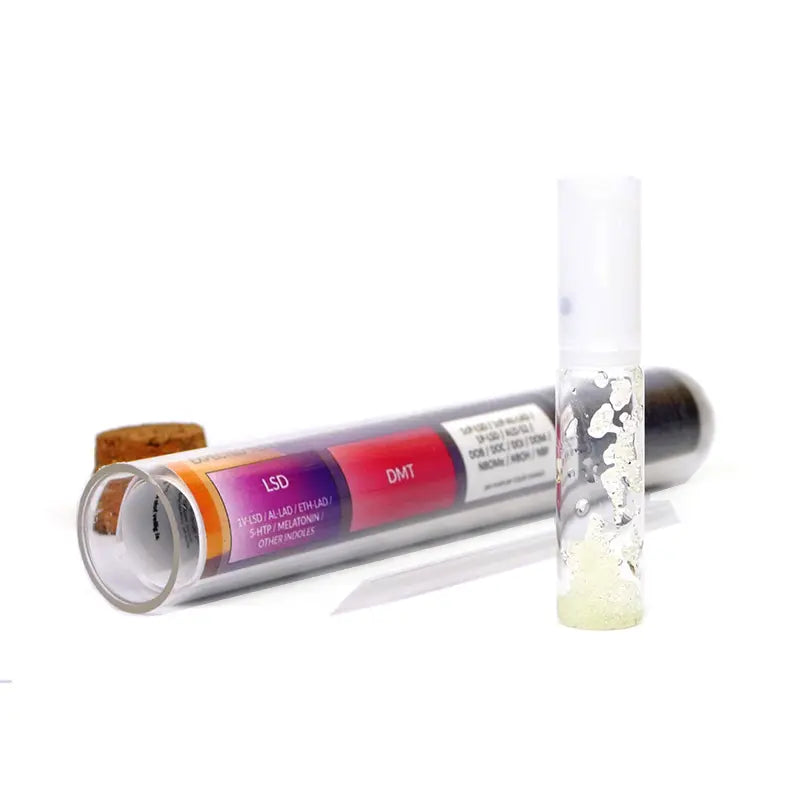PROTESTKIT
DMT Single-Use Test Kit
DMT Single-Use Test Kit
- Neutral packaging
- Data security
- 1 -3 day delivery
Couldn't load pickup availability
Share

A POSITIVE OR NEGATIVE TEST RESULT DOES NOT INDICATE WHETHER A SUBSTANCE IS SAFE. NO SUBSTANCE IS 100% SAFE.
-

1. Gently break the ampoule(s)
-

2. Insert sample
-

3. Check the results
-

4. Dispose safely
Collapsible content
WHAT IS DMT SINGLE-USE TEST KIT USED FOR?
DMT Reagent Test includes Ehrlich reagent best for best for DMT or LSD but also suitable for other tryptamines, lysergamides and more. It is used to positively identify DMT, DET, 5-MeO-xxx, 4-HO-xxx, harmaline, harmine, gramine, scopolamine and to rule out NBOMe, N3OMe, NBOH, NBF, DOx or different, less predictable, less desirable, highly toxic dangerous drugs. Multiple reagents are required to detect adulterants and increase analysis precision.
Reagent tests can indicate PRESENCE, but not QUANTITY.
WHAT IS INCLUDED IN DMT SINGLE-USE TEST KIT?
DMT Reagent Test includes Ehrlich reagent, micro spatula, instructions and app for all test kits and over 800 substances. Each ampoule contains enough reagent for at least 1 test. Oxygen-free hermetically sealed glass ampoule protects reagent from light, plastic and moisture to ensure prolonged shelf life.
HOW TO USE DMT SINGLE-USE TEST KIT?
The process of testing for psychoactive substances is completely straightforward. It is important to follow the instructions included in the package and within a few minutes you will be able to self-assess your results.
HOW TO INTERPRET THE TEST RESULTS?
Compare the colour change of the reagent with the colour palette provided in the instructions.
WHAT ARE THE CONDITIONS FOR USING AND ADMINISTERING THE TEST?
Psychoactive substance test kits contain toxic and/or corrosive chemicals that can burn skin and clothing. Keep away from eyes or mouth; Keep away from children and animals; Always use in a well-ventilated area; Wear gloves and safety goggles; Never point at face or other parts of body. If test materials get on skin and/or clothing, wash immediately with plenty of water and soap; Store reagents in a cool and dark place; The accuracy of reagents will deteriorate over time or due to exposure to air, especially if exposed to sunlight or if stored outside the refrigerator. If you are in doubt about the accuracy of a reagent, test it on a sample that has already been validated.





